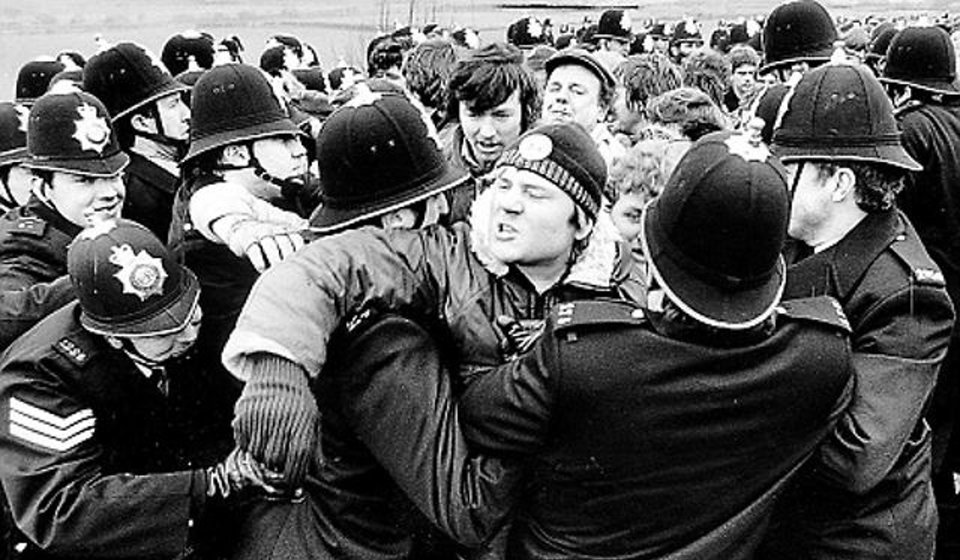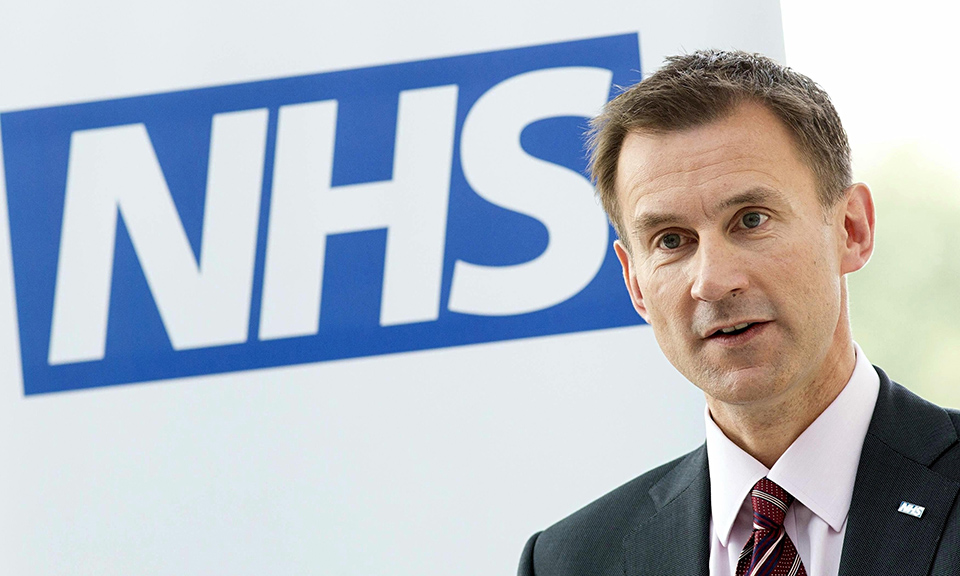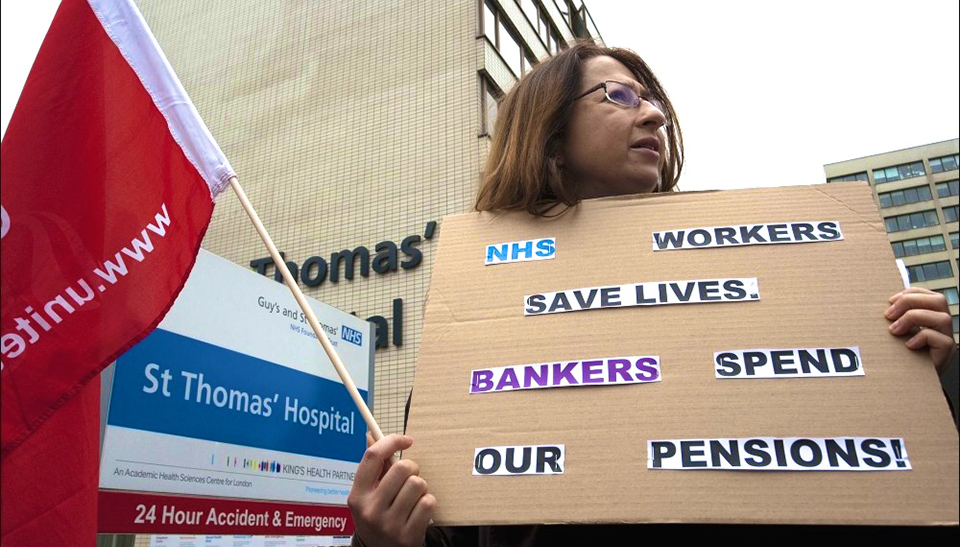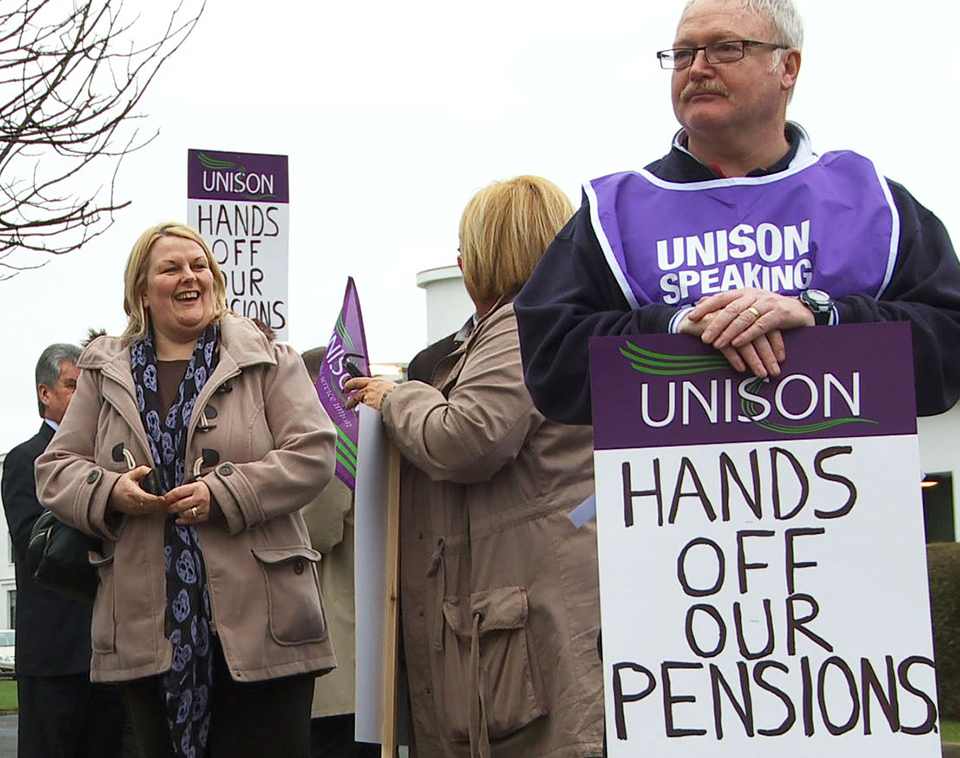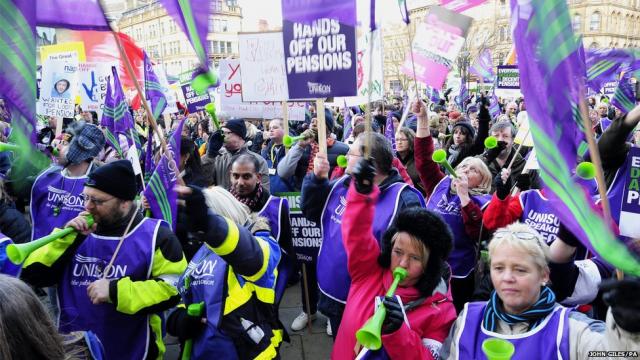
Britain’s coalition ministers have been summoned to an emergency meeting ahead of one of the UK’s biggest ever strikes scheduled next month. On July 10, an anticipated 1.5 million public sector workers will walk off their jobs to protest what they've called "miserly" pay.
Government workers are infuriated by a state offer that would result in their bringing home an annual income of £14,000 ($23,500) – a 1% raise which fails to keep pace with the 1.9% rate of inflation that has gripped the country. Those at even lower pay grades will earn just 25 pence more than the minimum wage in the current offer.
The 24-hour walkout is expected to include social workers, care home staff, town planners, librarians and other government employees. The strike action will likely be supported by more than 50,000 civil servants and teachers.
The UK’s Two Biggest Post-war Strikes
Union leaders were quick to highlight that the July 10 strike, together with the massive public sector walk-out over pension reforms in 2011, mean Prime Minister David Cameron's coalition government will have presided over the two biggest strikes in the UK since World War II.
In 2011, 2 million public sector employees walked out over pension reforms, marking the biggest outbreak of worker unrest in three decades since the "winter of discontent" in 1979. At the time of the 2011 strike, Labour leader Ed Miliband said government must accept responsibility for the industrial action, asking Prime Minister Cameron:
“Why do you think so many decent, hard-working public sector workers, many of whom have never been on strike before, feel the government simply isn’t listening?”
Discontentment Déjà Vu
Now, with 1.5 million preparing to strike in one month, a feeling of déjà vu is encroaching on the British Isles – elevating the issue of the 1% pay raise to the forefront. In March, paltry pay hikes hit the headlines when Health Secretary Jeremy Hunt refused to give National Health Service (NHS) workers a much-needed salary rise.
Instead, Hunt, who is personally worth an estimated £4.8 million ($8 million), offered a 1% raise to half of NHS workers. Unions threatened industrial action, citing that not only is a 1% rise below the 1.9% rate of inflation – but almost 60% of NHS workers would not even see a pay increase.
Twisting the knife further, Members of Parliament (MPs) are currently in line for an 11% pay raise next parliament. Labour MP Grahame Morris likened the situation to “Caviar for Hunt and peanuts for nurses.”
“It is a bitter pill for nurses and NHS staff working under increasing pressure to have a Tory Health Secretary with a personal wealth of millions impose a real term pay cut," Morris told reporters.
Unite and Unison, two of the UK’s biggest trade unions, have already rejected the government’s pay offer. The unions are currently balloting their members, who are expected to vote for the strike. Unite wants the government to pay workers an extra £1 an hour. Unison argues that low grade workers employed by local government have seen their pay reduced by 20% since the coalition came to power in 2008.
“I know how angry our members are at feeling the worth of their pay plummet over recent years. Many have to rely on benefits, food banks or resort to payday loans to make ends meet," warned Unison General Secretary Dave Prentis. "This cannot go on. Pay freezes and squeezes are not sustainable as this Government will soon find out.”
From firefighters heading to the picket lines protesting changes made to their pensions to teachers striking over “intolerable pressures” from the government – and now a million and a half public sector employees threatening to walk out – it’s safe to say a British workers rebellion is underway.
Meanwhile, Helicopters and Yachts for the Boss
Dave, a residential children’s care worker from Manchester, is a member of Unison and agrees that strong action is needed to make the government listen. He says there's little job security anymore within the public sector. In his field in particular, more and more residential care homes throughout Britain are getting franchised out to private companies, making job cuts even more threatening.
Adding to that, Dave described the shocking pay inequality within the children’s care system – recalling a private nursing home in Wales where he once worked, where the director of the home would fly in on his helicopter, briefly check that all the workers were pulling their weight, then fly back to his yacht.
“Looking after the physical and mental wellbeing of vulnerable adults in care is a potentially dangerous job in which the employees deserve a lot more pay," Dave told Occupy.com. "Instead, [local authorities] are selling the residential homes to private companies, forcing us out of work and to cope with the laughable inequality of the private sector pay system."
“Meanwhile they’re offering a pay rise that’s not even in line with inflation. What choice do we have but to strike?”
Can the Strike Make a Difference to “Unsustainable” Wages?
It's a difficult question – and judging by PM Cameron’s response to burgeoning UK worker discontent, as he threatens to implement tougher legislation to curb strike action if his party gets re-elected, the answer looks unlikely.
According to the Daily Mail, the only reason Cameron hasn’t yet introduced a law against strikes is because of opposition from Liberal Democrats in the coalition government.
London Mayor Boris Johnson has backed Cameron's stance on curbing strikes, stating they should only go ahead if 50% of union members vote for them. In response, Paul Kenny, general secretary of the GMB union, with some 620,000 members, said:
“Workers’ rights are already severely constrained and curtailing the right to strike even more is simply neither acceptable nor democratic.”
3 WAYS TO SHOW YOUR SUPPORT
- Log in to post comments


